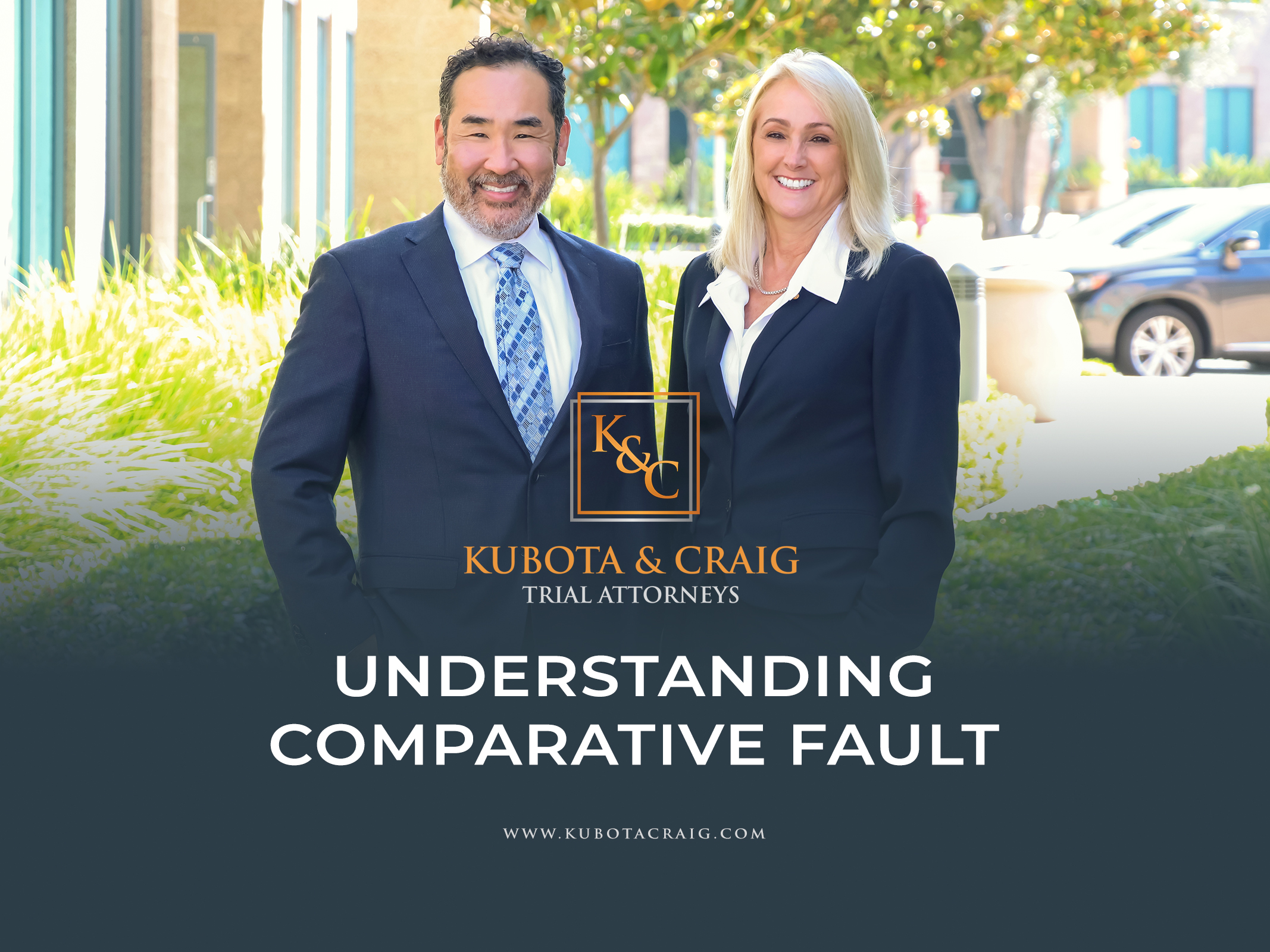Understanding Comparative Fault in Accident Cases

As a personal injury attorney at Kubota & Craig in Irvine, CA, I’ve seen firsthand how accidents can lead to complex legal situations. One crucial aspect of personal injury law that often arises is the concept of comparative fault. In this blog post, I’ll shed light on what comparative fault means, its implications for your accident claim, and why seeking professional legal assistance is essential.
What Is Comparative Fault?
Comparative fault, also known as comparative negligence, is a legal doctrine applied in personal injury cases. It recognizes that accidents are rarely the result of a single party’s actions or negligence. Instead, multiple factors can contribute to an accident. Comparative fault seeks to assign a degree of fault to each party involved in an accident based on their actions or negligence.
How Does Comparative Fault Work?
Understanding how comparative fault works is crucial for anyone pursuing a personal injury claim. Here’s how it typically operates:
1. Assignment of Fault
After an accident, a thorough investigation is conducted to determine the circumstances and factors that led to the incident. This investigation helps assign a percentage of fault to each party involved, including the plaintiff (injured party) and the defendant (alleged at-fault party).
2. Impact on Compensation
The percentage of fault assigned to each party directly affects the compensation they may receive. In states that follow pure comparative fault rules, even a plaintiff who is partially at fault can still recover damages. However, the awarded compensation is reduced based on their percentage of fault. For example, if a plaintiff is found 20% at fault and is awarded $10,000, their compensation would be reduced to $8,000.
3. States with Modified Comparative Fault
Some states have modified comparative fault laws that impose a threshold. In these states, a plaintiff can only recover damages if their percentage of fault falls below a certain threshold, often 50%. If the plaintiff is deemed equally or more at fault than the defendant, they may not recover any compensation.
Why Seek Legal Representation?
Handling a personal injury claim involving comparative fault can be challenging without legal expertise. Here’s why it’s crucial to hire a personal injury attorney:
1. Legal Expertise
Personal injury attorneys have a deep understanding of the intricacies of comparative fault laws in your state. They can evaluate your case, assess your percentage of fault, and determine the best legal strategies to maximize your compensation.
2. Evidence Collection
Your attorney will gather and present evidence to support your claim while countering any arguments made by the opposing party. This includes witness testimonies, accident reports, medical records, and expert opinions.
3. Negotiation Skills
Even in cases involving comparative fault, negotiations with insurance companies and opposing parties are common. An experienced attorney can skillfully negotiate on your behalf, aiming to secure a fair settlement.
4. Protection of Your Rights
Your attorney will protect your rights throughout the legal process, ensuring that you aren’t unfairly blamed for an accident in which you had minimal or no fault.
Conclusion
Understanding comparative fault is vital when pursuing a personal injury claim. If you’ve been injured in an accident in Irvine, CA, it’s crucial to seek legal representation from Kubota & Craig. Our team of dedicated personal injury attorneys has the knowledge and experience to navigate complex cases involving comparative fault, working tirelessly to secure the compensation you deserve. Read more.

